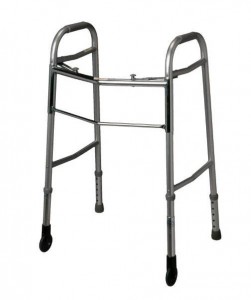 Patti Lamberti is a professional in residence who teaches courses in journalism and new media at Loyola University Chicago’s School of Communication. In her post Tech Savants, she gives us the rundown on what twenty-something’s think about a mainstream workplace communication tool:
Patti Lamberti is a professional in residence who teaches courses in journalism and new media at Loyola University Chicago’s School of Communication. In her post Tech Savants, she gives us the rundown on what twenty-something’s think about a mainstream workplace communication tool:
“Email is for old people.”
Ouch.
Anybody who’s had a conversation (or more likely, a text exchange) with a college undergraduate will not be completely surprised by this sentiment, but I suspect that many college graduates would be surprised to find out that their preferred communication choices don’t always translate well when they join the workforce.
In the interest of helping ease the college-to-workplace transition, I’m going to set aside my orthopedic shoes and walker for a moment and give a bit of advice to undergraduates hoping to land a decent job after college. Here goes:
We “old people” (think: older than Facebook’s 28 year-old Mark Zuckerberg) are still running the show at most companies. So, beside the prehistoric company email system you’re going to need to master, here are some changes you’ll need to make in your communication to make a successful transition from college life to the workplace.
You will have to actually speak to people. While a college student’s communication lifeblood is texting, that’s not the case in most office settings. If your new job requires you to be in a space with other human beings you will have to actually converse with them. This means looking them in the eye and carrying on a thoughtful conversation. Yes, some people will be snarky or whiny, but that’s part of learning how to get along with people at work.
When you’re at work, you may not be able to check Facebook. Shocking, I know! Company policies vary on the use of Facebook, but even the most progressive places will want you to limit your personal updates to your break times. Oh, and when you do update? Keep the nasty commentary about your dragon-lady boss or smelly co-workers out of your Facebook feed. It will come back to haunt you.
It’s rude to use a cell phone when someone is talking to you. This one is tricky— company cultures vary and you may see some people checking their phones constantly during meetings. So, it may be considered acceptable. I still go old-school on this and say it’s rude to do so during meetings. The one time it’s always considered rude— when you’re having an important conversation with someone. Again, it goes back to that eye-contact thing— co-workers expect it, especially we middle-aged types.
You will need to cut down on multi-tasking. In college you may have simultaneously watched TV, studied for your poli-sci exam, updated your Flikr account and texted your friends across campus. But the reality is that you suck at multitasking. We all do. And, even if you were a multi-tasking genius in school, you won’t be granted complete control over your work surroundings. You may be in a cubicle that’s so tiny that your nearest co-worker will still be able to hear your music coming through your ear buds. And that co-worker may not like your taste in music.
Feeling frustrated by all these “rules”? Don’t let it get to you. It does take some time to adjust to the structure of a workplace setting. And the upside is that if you’ve chosen your first job wisely, people in your office will (mostly) be energized by your youthful enthusiasm and your up-to-date technical skills. Who knows, you may even be able teach your co-workers a few things about technology.
Even if we’re old.
Leave a Reply